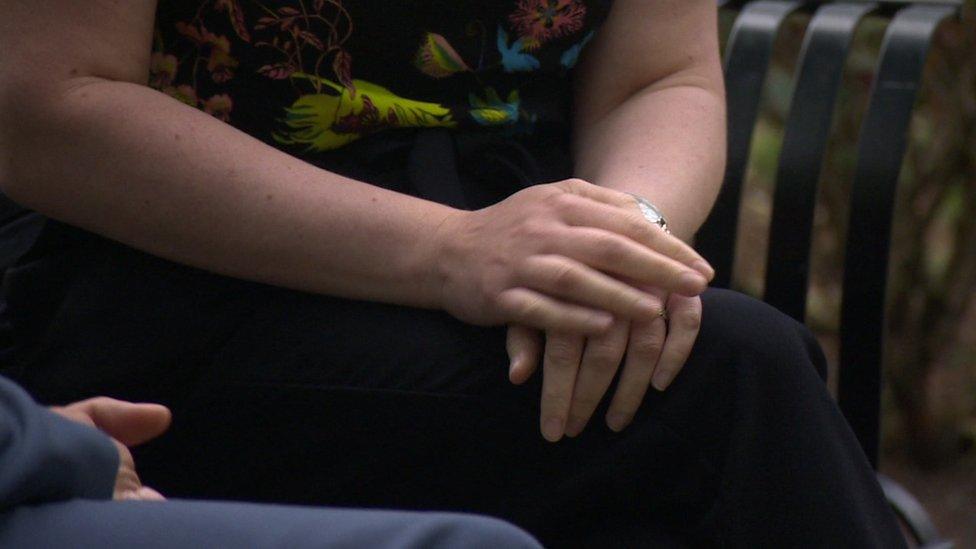Anti-stalking: Cheshire Police and Suzy Lamplugh Trust launch unit
- Published

Victim Laura (not her real name) praised the approach as "pioneering"
A "pioneering" anti-stalking initiative is to work with those who commit the crime to "understand the underlying motivation", a psychologist says.
Dan Price-Jones said knowing the reasons for stalking would help "minimise risks" to victims as well as manage risks posed by the stalker.
The unit has been launched by Cheshire Police and victims' charity the Suzy Lamplugh Trust.
Similar units are also being rolled out in Hampshire and London.
The anti-stalking team brings together police, psychologists, probation staff, social workers and victim advocates to decide on the best steps to take to minimise the risk of stalking incidents.
Mr Price-Jones, a forensic psychologist who is part of the team, said: "Many stalkers have a sense of entitlement to do what they are doing - we need to understand their motivation."
He said it means "we can then think about who is at risk, when are they at risk, what does that risk look like and what do we need to do to manage that risk".
The Suzy Lamplugh Trust was set up in memory of the estate agent who has been missing in 1986
Victim Laura (not her real name) praised the approach the unit was taking.
"I still need to find out why he did it," said Laura, who was stalked for a year by an ex-partner after their four-year relationship ended.
"He would park in my street but I found out later he had cameras filming me in my home and had even fitted a tracker to my car," she said.
"I would love to know his motivation and that he had stopped because the right interventions had been put in place."
Det Ch Insp Nigel Wenham said the project started as an anti-stalking clinic
Det Ch Supt Nigel Wenham said the project began as an anti-stalking clinic 18 months ago and one of its aims was to "get into the mind of perpetrators".
It was unrealistic to expect an individual police officer to "identify the complex factors" behind the stalking, he explained.
He said what drives their behaviour could be a range of factors including personality, emotions or "underlying psychosis".
The Suzy Lamplugh Trust - set up in memory of the estate agent who has been missing in 1986 and is presumed murdered - runs the national stalker helpline and says 1.1m people were stalked last year.